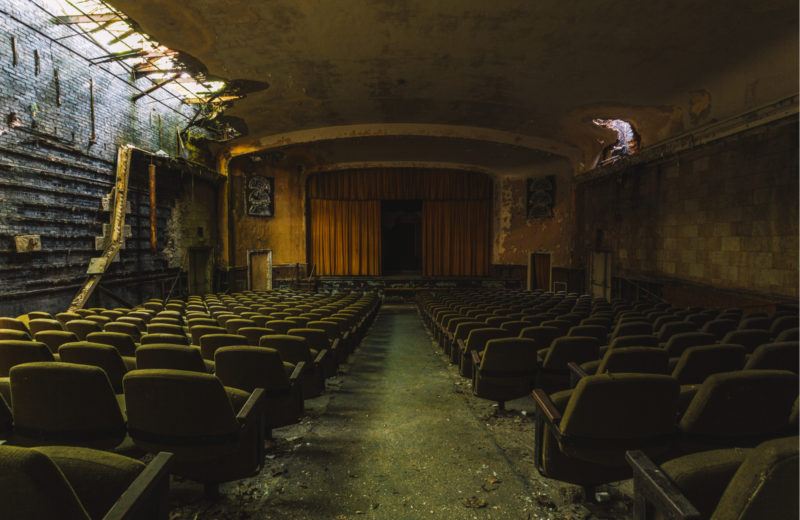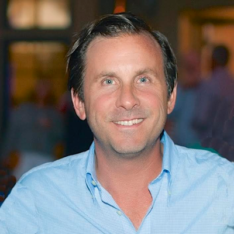Open Up and Let Free People Choose

“I want to be back in business right this second. But we’ve got to be smart about it. What happens if we open too soon and contribute to an outbreak? Traced to the Plaza Theater! You know what that would do to my business? I wouldn’t have one.” Those are the words of Atlanta-based Plaza Theater owner Chris Escobar, in a phone interview conducted by New York Times reporters Nicole Sperling and Brooks Barnes.
Georgia is set to “re-open” its economy, and Escobar’s comment vividly explains why the state should re-open, why it’s more than safe to, and also why the shutdowns should never have happened in the first place. His response is a reminder that people and businesses don’t need a law.
They don’t because it’s generally not their style to do that which might kill them. That the coronavirus unknowns are many means that with or without lockdowns, Americans would have been quite a bit more than cautious. And they still will be. In a free society, there’s no such thing as a “do nothing” response to anything that has the potential to kill.
Free Americans are constantly responding to challenges, and organizing ways to address the challenges. To pretend that absent political guidance that they would have sat listless in response to the new coronavirus isn’t realistic. They would have mobilized. Crucial is that they always have. As Alexis de Tocqueville put it about the Americans he observed in the 19th century:
“The political associations that exist in the United States are only a single feature in the midst of an immense assemblage of associations in that country. Americans of all ages, all conditions, and all dispositions, constantly form associations. They have not only commercial and manufacturing companies, in which all take part, but associations of a thousand other kinds – religious, moral, serious, futile, general or restricted, enormous or diminutive.”
Looked at through a Toquevillian lens modernly, it’s quite a bit easier for Americans to form associations, and other entities meant to deal effectively with what is potentially grave. As we’ve seen amid these unnecessary lockdowns, innovations frequently achieved by Americans have made it possible for the citizens of the world to communicate in lightning-fast fashion over the phone, computer, and increasingly face-to-face in live fashion (think Zoom), With copious information at their fingertips thanks to the aforementioned advances, the idea that they needed guidance from politicians to craft a virus response that would result in safe outcomes is similarly unrealistic. More realistically, the presumption among some that the virus’s unknowns are rather deadly very much explains why Americans should have been left free to organize responses on their own.
Let a thousand flowers bloom, as it were. If states are the laboratories of ideas in good times, why limit the experimentation in bad times with one-size-fits-all lockdowns? It cannot be stressed enough that the political response to a virus, one that has broadly limited freedom with our “own good” in mind, has amounted to an obnoxious non sequitur. Death potentially looms due to an unknown, so restrain the very human capital that has felled all manner of past maladies with economic growth, creativity, and advances born of growth capital matched with the creative?
Some will say, and have said, that they can’t risk the possibility of others not abiding social norms that would result from freely arrived at responses, but just as there’s no such thing as a “do nothing” response to a virus, neither is there a society where everyone follows the rules. This is true in even the most brutal of police states. Applied to a free society, some would flout the rules given their desire to be around others. If so, the fearful would have an easy answer: self-quarantine.
But just as illegal heroin users produce crucial information for the law abiding through their usage of what politicians don’t allow, so would the Covid-careless provide crucial information now. It’s been said in previous columns, but rates restatement: the lack of freedom that so many say is the coronavirus solution is in truth what blinds us to a solution. There’s so much we don’t know, and one reason we don’t is because there are too many rules, and too many not allowed by decree to produce information about the implications of people freely moving about and interacting. The same applies to businesses.
Escobar owns his business and he’s expressed to Sperling and Barnes that he doesn’t want to re-open. Too many unknowns with the virus, and as a consequence he doesn’t want to make an economic decision that could come back to haunt his theater’s brand. Escobar should be free to remain closed.
At the same time, it’s not unreasonable to suggest that more than a few business owners in Georgia don’t share Escobar’s pessimism; that, or it’s not a luxury they can presently express. So that their businesses can survive, they need to re-open yesterday, so much so that they’ll risk the possibility of the virus spreading in their places of business such that an outbreak could in the future be “traced” back to them. Yes, that’s possible, and if so, an enormous amount of known information is produced. Information that would redound to Escobar as he plans his own re-opening.
Indeed, it should be made clear that while Escobar is reluctant right now to re-open the Plaza Theater, it’s not unreasonable to suggest that he would wait many more months, or years (how long some say a it will take to create a vaccine) to re-open. Eventually businesses will have to resume operations or face total closure, which again speaks to the importance of freedom now. Let the intrepid begin their experimentation with what’s their property, let free people resume patronizing those same businesses (does anyone really think we could or would stay cooped up forever?), and let’s all learn from what their actions reveal.
Notable for the purposes of this piece is that Georgia’s governor “allowing” the opening is a Republican. He’s one of 26 Republican governors. As proponents of limited government, they should one up Georgia’s Governor Kemp with total freedom over limited re-opening.
Republicans talk personal responsibility and the genius of markets, so let free, responsible people figure out through market signals what the present and future will be now that a new virus has entered our present. Simply stated, if Republicans won’t abide their rhetoric when it’s most necessary to abide, why elect them?
Reprinted from RealClearMarkets











